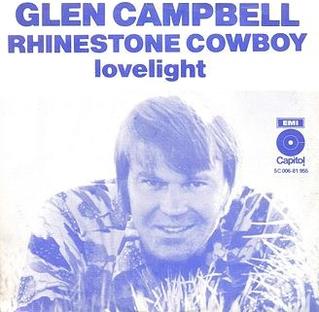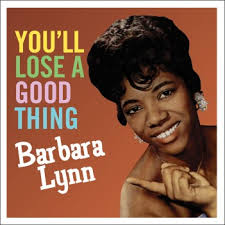Related Research Articles

"Crazy Little Thing Called Love" is a song by the British rock band Queen. Written by Freddie Mercury in 1979, the track is included on their 1980 album The Game, and also appears on the band's compilation album Greatest Hits in 1981. The song peaked at number two in the UK Singles Chart in 1979 and became the group's first number-one single on the Billboard Hot 100 in the US in 1980, remaining there for four consecutive weeks. It topped the Australian ARIA Charts for seven weeks. It was the band's final single release of the 1970s.

Freddy Fender was an American Tejano singer-songwriter, known for his work as a solo artist and in the groups Los Super Seven and the Texas Tornados. His signature sound fused country, rock, swamp pop and Tex-Mex styles.

"Secret Love" is a song composed by Sammy Fain (music) and Paul Francis Webster (lyrics) for Calamity Jane, a 1953 musical film in which it was introduced by Doris Day in the title role. Ranked as a number 1 hit for Day on both the Billboard and Cash Box, the song also afforded Day a number 1 hit in the UK. "Secret Love" has subsequently been recorded by a wide range of artists, becoming a C&W hit firstly for Slim Whitman and later for Freddy Fender, with the song also becoming an R&B hit for Billy Stewart, whose version also reached the top 40 as did Freddy Fender's. In the UK, "Secret Love" would become the career record of Kathy Kirby via her 1963 remake of the song. The melody bears a slight resemblance to the opening theme of Schubert's A-major piano sonata, D.664.
This is a list of notable events in country music that took place in the year 1975.

"Rhinestone Cowboy" is a song written and recorded by Larry Weiss in 1974, then popularized the next year by American country music singer Glen Campbell. When released on May 26, 1975, as the lead single and title track from his album Rhinestone Cowboy, it enjoyed huge popularity with both country and pop audiences.

Ricardo Treviño Jr., known professionally as Rick Trevino, is an American country music artist. Signed to Columbia Nashville in 1993, Trevino began his career that year with the release of his debut single "Just Enough Rope", the first mainstream country music single to feature separate English and Spanish versions. The song was included on his debut album Dos Mundos; a self-titled album followed a year later. Trevino has charted a total of fourteen singles on the Billboard Hot Country Songs chart and recorded seven studio albums. His highest-charting single, "Running Out of Reasons to Run", reached No. 1 on that chart in 1996.

"Squeeze Box" is a song by the Who from their album The Who by Numbers. Written by Pete Townshend, the lyrics are couched in sexual double entendres. Unlike many of the band's other hits, the song features country-like elements, as heard in Townshend's banjo picking.
"A Better Man" is a song by American country music artist Clint Black. It was released in February 1989 as his debut single, and was served as the first single from his debut album, Killin' Time. It was written by Black and Hayden Nicholas. When "A Better Man" went to No. 1 on the Billboard magazine Hot Country Singles chart on June 10, Black was the first artist since Freddy Fender to ascend to the top of the country chart with his first charted single. In addition, "A Better Man" was the No. 1 song of 1989 on the Hot Country Singles chart. The success of "A Better Man," along with the follow-up "Killin' Time," were instrumental in Black winning the Country Music Association's Horizon Award in 1989.

"Before the Next Teardrop Falls" is an American country and pop song written by Vivian Keith and Ben Peters, and most famously recorded by Freddy Fender. His version was a major crossover success in 1975, reaching number 1 on the Billboard pop and country charts.

"Wasted Days and Wasted Nights" is an American country and pop song recorded by Freddy Fender. It is considered by many to belong to the swamp pop idiom of south Louisiana and southeast Texas that had such a major musical impact on Fender.

"You'll Lose a Good Thing" is a popular song written by rhythm and blues artist Barbara Lynn Ozen, who, performing as Barbara Lynn, scored a 1962 Top 10 hit, peaking at #8 and also the number 1 spot on the R&B charts, with her bluesy rendition of the song.

"Then You Can Tell Me Goodbye" is a song written by John D. Loudermilk. It was first released in 1962 by Don Cherry, as a country song and again as a doo-wop in 1967 by the group The Casinos on its album of the same name, and was a number 6 pop hit that year. The song has since been covered by Eddy Arnold, whose version was a number 1 country hit in 1968, and by Neal McCoy, whose version became a Top 5 country hit in 1996.
Benjamin James Peters was an American country music songwriter who wrote many #1 songs. Charley Pride recorded 68 of his songs and 6 of them went to #1 on the American country charts. Peters was inducted into the Nashville Songwriters Hall of Fame in 1980.
"The Rains Came" is a song written by Huey P. Meaux and originally recorded by Big Sambo and the House Wreckers in 1962, reaching #74 on the Billboard Hot 100 chart that year.
"A Whole Lotta Things to Sing About" is a song written by Ben Peters, and recorded by American country music artist Charley Pride. It was released in August 1976 as the first single from his album She's Just an Old Love Turned Memory. The song peaked at number 2 on the Billboard Hot Country Singles chart. It also reached number 1 on the RPM Country Tracks chart in Canada.

"Can't You See" is a song written by Toy Caldwell of The Marshall Tucker Band. The song was originally recorded by the band on their 1973 debut album, The Marshall Tucker Band, and released as the album's first single. Record World called it "a strong rhythm item that continually builds and builds." A live version was released in 1977 and peaked at number 75 on the Billboard Hot 100. Cover versions of "Can't You See" have charted for Waylon Jennings and the Zac Brown Band with Kid Rock (2010).

"(Till) I Kissed You" is a song written by Don Everly and recorded by the Everly Brothers. It was released as a single in 1959 and peaked at No. 4 on the Billboard Hot 100. Chet Atkins played guitar on this record and Jerry Allison played drums.
"Don't Believe My Heart Can't Stand Another You" is a song written Billy Ray Reynolds, and recorded by American country music artist Tanya Tucker. It was released in November 1975 as the first single from her album Lovin' and Learnin'. The song peaked at number 4 on the Billboard Hot Country Singles chart. It also reached number 1 on the RPM Country Tracks chart in Canada.
"Please Talk to My Heart" is a single by American country music artist Johnny "Country" Mathis. It was released in 1963, and peaked at number 14 on the Billboard Hot Country Singles chart. The song was written by Jimmy Lee Fautheree and Johnny Mathis.
"Just One Time" is a single written and originally recorded by American country music artist Don Gibson. Released in February 1960, the song reached #2 on the Billboard Hot Country Singles chart, while also reaching #29 on the Billboard Pop chart. The single was later released on Gibson's album Look Who's Blue.
References
- ↑ Wood, Roger; Cano, Ray (May 27, 2015). "SugarHill Recording Studios". Texas State Historical Association. Retrieved 19 August 2024.
- ↑ "Freddy Fender singles". Allmusic . Retrieved 16 March 2011.
- ↑ "RPM Country Singles for December 11, 1976". RPM . Retrieved 16 March 2011.